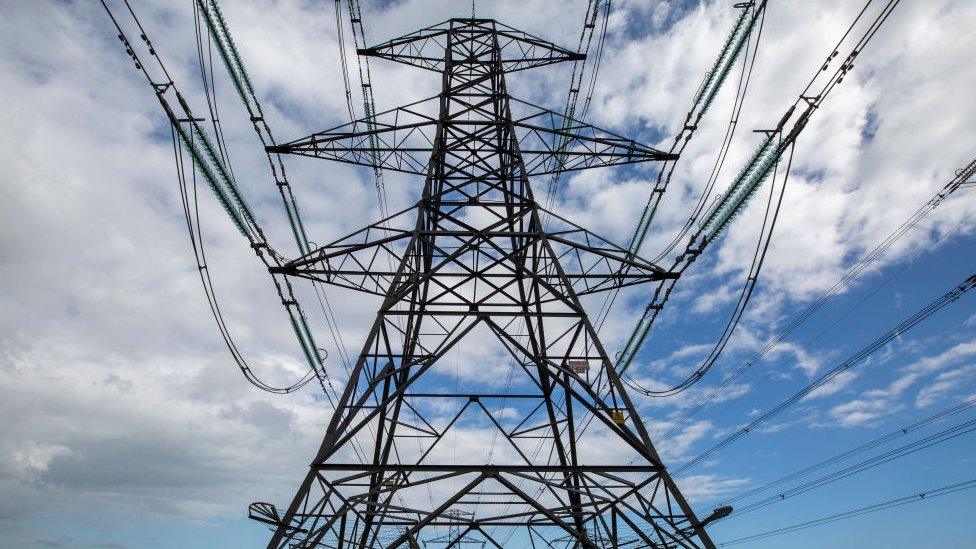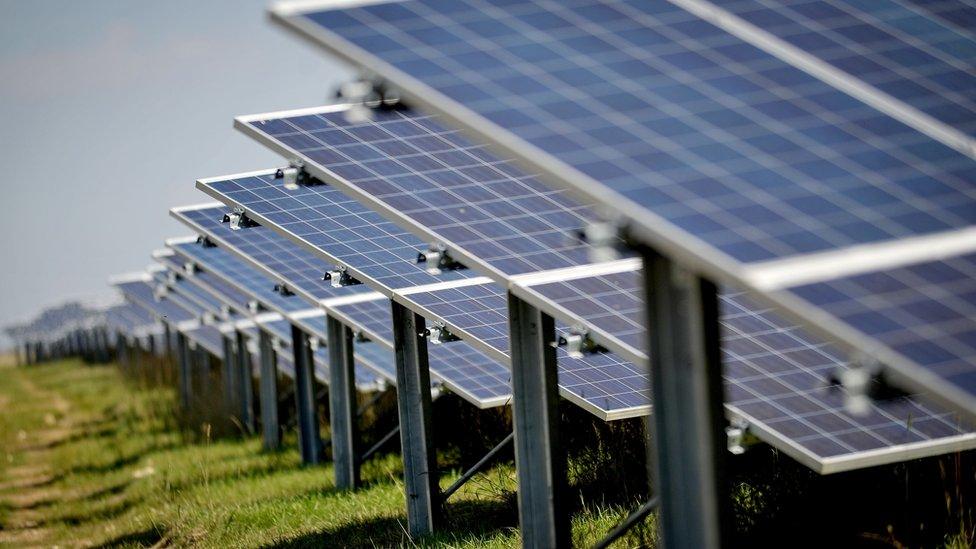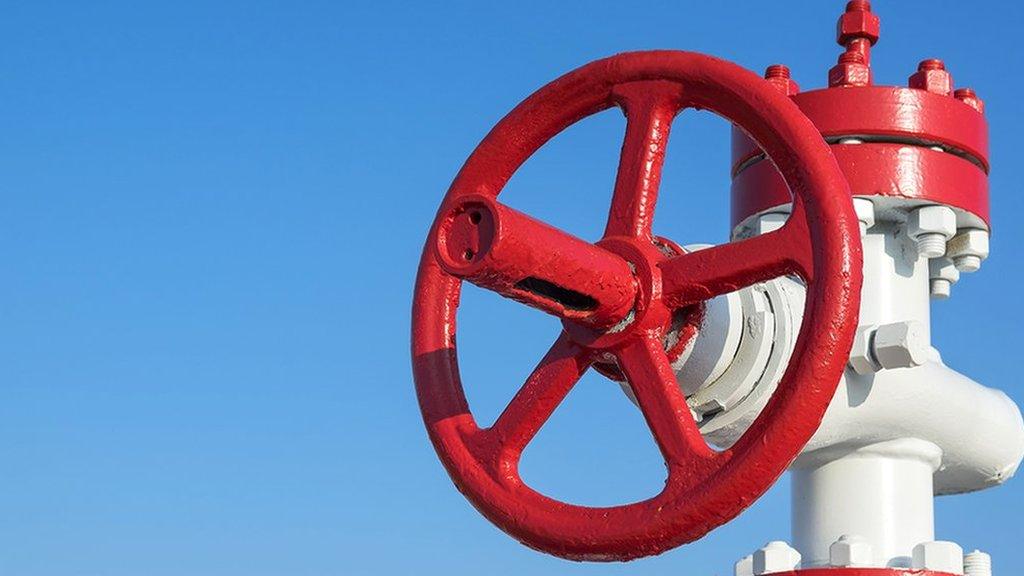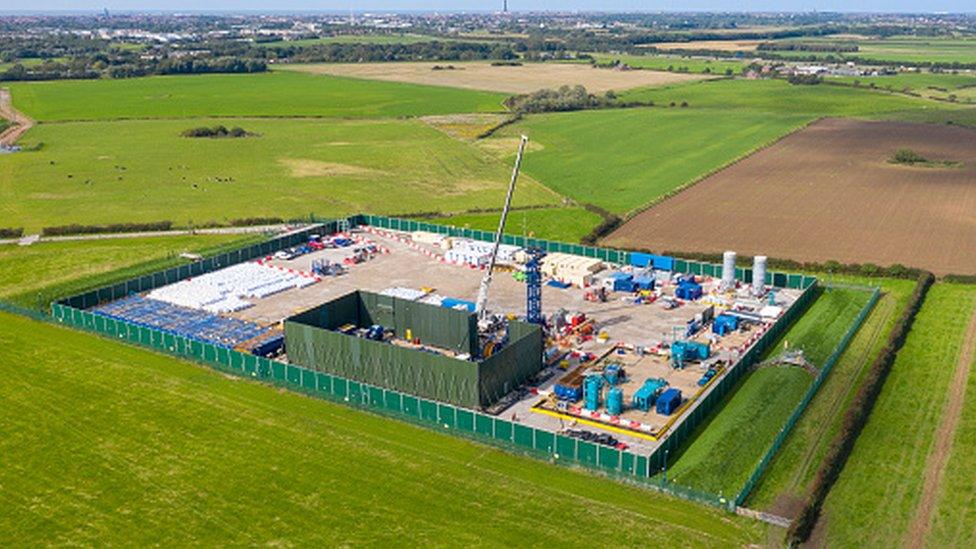Will the UK's energy strategy work?
- Published

It's worth noting what this strategy is - and what it is not.
It is not a plan to cushion the UK economy from the immediate cost of living crisis caused in large part by rocketing international energy prices.
It is the government's attempt to increase the UK's resilience to future energy shocks.
It does set out a plan to wean the UK off fossil fuels but acknowledges that we are not in a position to do that just yet.
It also does not involve significant government spending beyond that which has already been committed and to its critics it's a plan that fails to hit any of its various targets.
New nuclear power forms the centrepiece of the plan.
In addition to advanced plans to approve two new reactors at Sizewell in Suffolk during this parliament, Wyfla in Anglesey is named as a candidate to host either a large scale plant, smaller modular reactors or possibly both in the next parliament.
The prime minister and the business secretary's enthusiasm for more onshore wind - the cheapest and quickest forms of renewable energy to deploy - has been tempered by fears that public and backbench MP opinion is divided.
Communities that want them, and the energy bill discounts that living near turbines could bring, will still be encouraged to have them.
Targets for hydrogen production are doubled with a plan to have a working facility by 2025, while targets for solar and offshore wind have been increased.
The conflict in Ukraine has made a powerful argument for weaning the UK off fossil fuels in the long term but have also exposed the continued international reliance on them.
Ministers are convinced that in the short term the world needs more gas. In the long term less.
Plans to accelerate North Sea oil and gas projects will prompt dismay from environmental groups who argue that it will make little difference to energy prices that are set internationally. But supporters say it makes no sense to import liquefied gas from the US, Qatar and elsewhere when domestic production that can provide UK jobs and domestic tax revenues is closer to hand.
Above all, this is a plan to secure future supply rather than reduce demand.
Policies to reduce household and business consumption are largely limited to tax breaks to introduce privately funded energy saving measures.
To its advocates it's the moment when the government called time on a decade of drift in energy policy, to its critics it's a plan full of reheated ideas that has come too late.
Related topics
- Published7 April 2022

- Published3 April 2022

- Published26 January 2023

- Published7 March 2022


